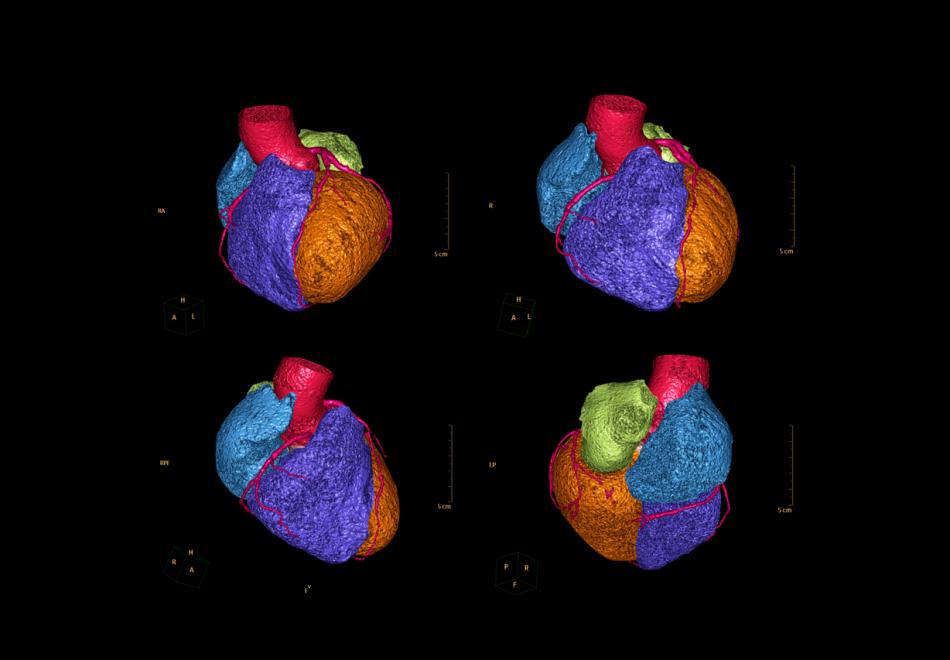Common reasons for cardiac CT:
To look at calcium and fatty deposits (plaque) built-up in the coronary arteries
To assess narrowing of coronary arteries as part of chest pain investigation
To gain further anatomical information e.g. aortic valve / root / aortic dimension
How do I prepare and how is it done?
We need a steady and reduced heart rate for good quality images. Therefore, you should avoid caffeine (coffee, tea, caffeinated soft drink) for 12 hours before the CT scan. You will be asked to attend the Radiology Department in one of our partner private hospitals.
You must inform the CT department prior to the scan if you are:
- allergic to iodine
- pregnant
- asthmatic with frequent (brittle) attacks
A small plastic tube (cannula) will be pre-inserted into a vein for later administration of medication and iodine contrast dye during the scan to visualise the arteries.
You will first complete a short safety questionnaire, and then you will be asked to take some medication (either orally or intravenously via the cannula) in order to slow down the heart. Once you are on the CT scanning table, you will be given sublingual GTN spray to dilate the heart arteries. You will be asked to place your arms above your head and the table will move towards the scanner.
CT scan is quick, painless and non-invasive - the Radiologist will communicate with you via the intercom advising you the need to hold your breath (freezing motion) during the scan. When ready, iodine contrast dye will be injected into your vein (via the pre-inserted cannula) by remote control, timed precisely to your ECG, to visualise your coronary arteries. The iodine dye is harmless but can cause you to feel flushed / false sense of urinating. A metallic taste in the mouth can also be experienced transiently. These are all normal reactions to iodine contrast dye and are all short-lived.
A Cardiac CT scan takes only 20-30 minutes to perform but the total preparation and recovery time may take up to an hour.
What will happen after the scan?
After the scan, you will be guided into a recovery area and be asked to remain for about 30 minutes. This is to ensure there is no adverse reaction to the iodine contrast dye. You should drink plenty of fluid for the rest of the day to flush out the iodine contrast dye from your body. You can then leave the hospital and wait for our team to contact you with results.
Your scan will be immediately reported by expert radiologists and the findings will be discussed with you within 24-48 hours after the scan.
